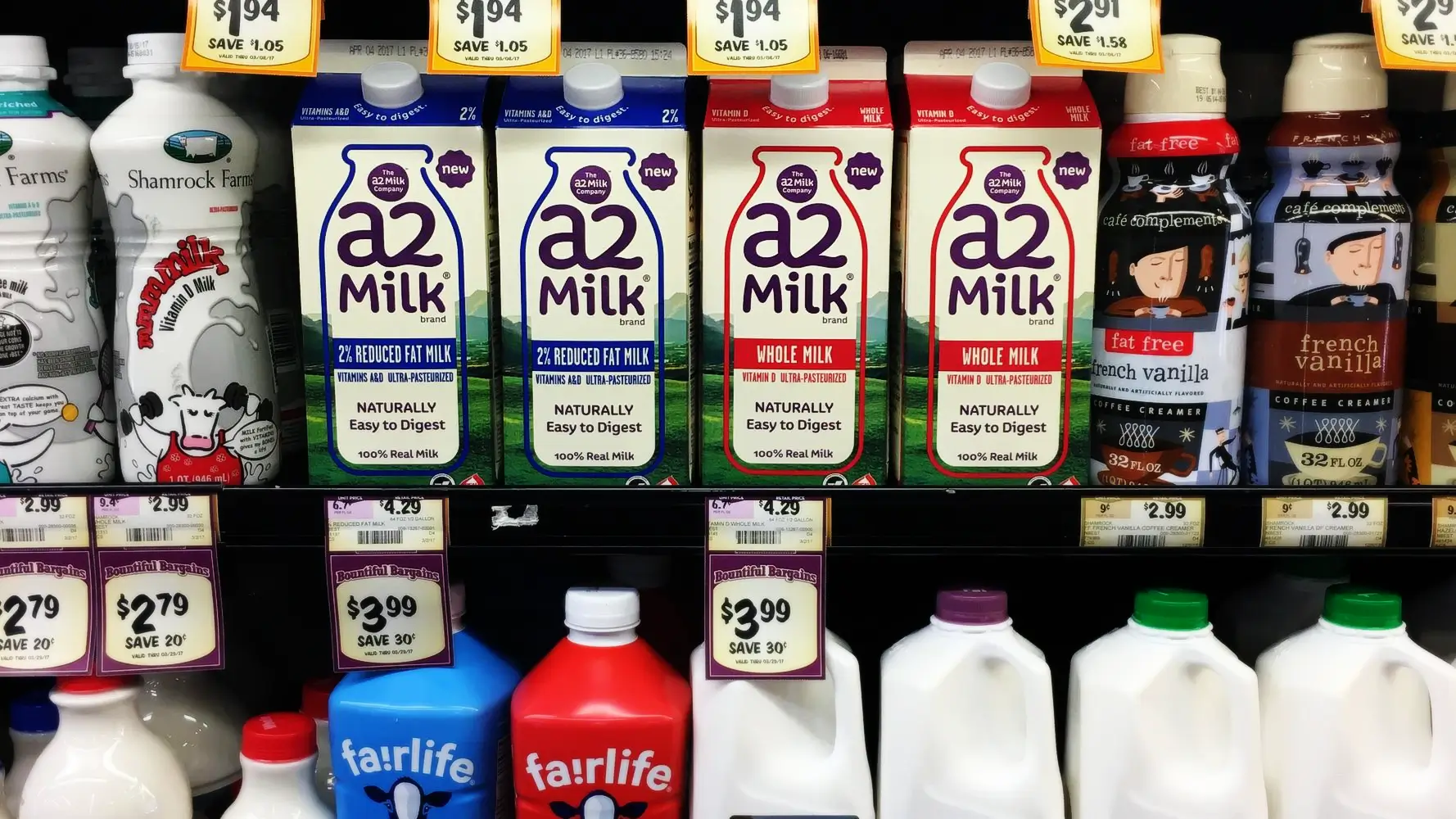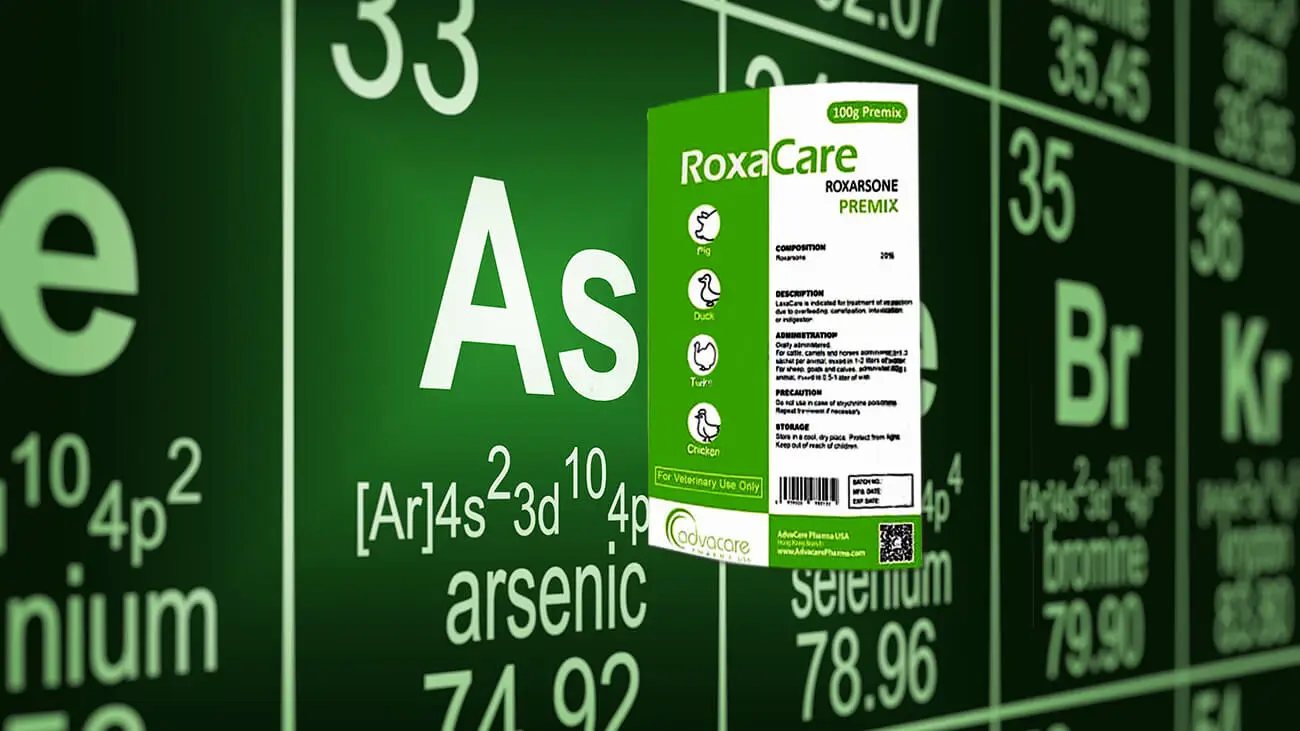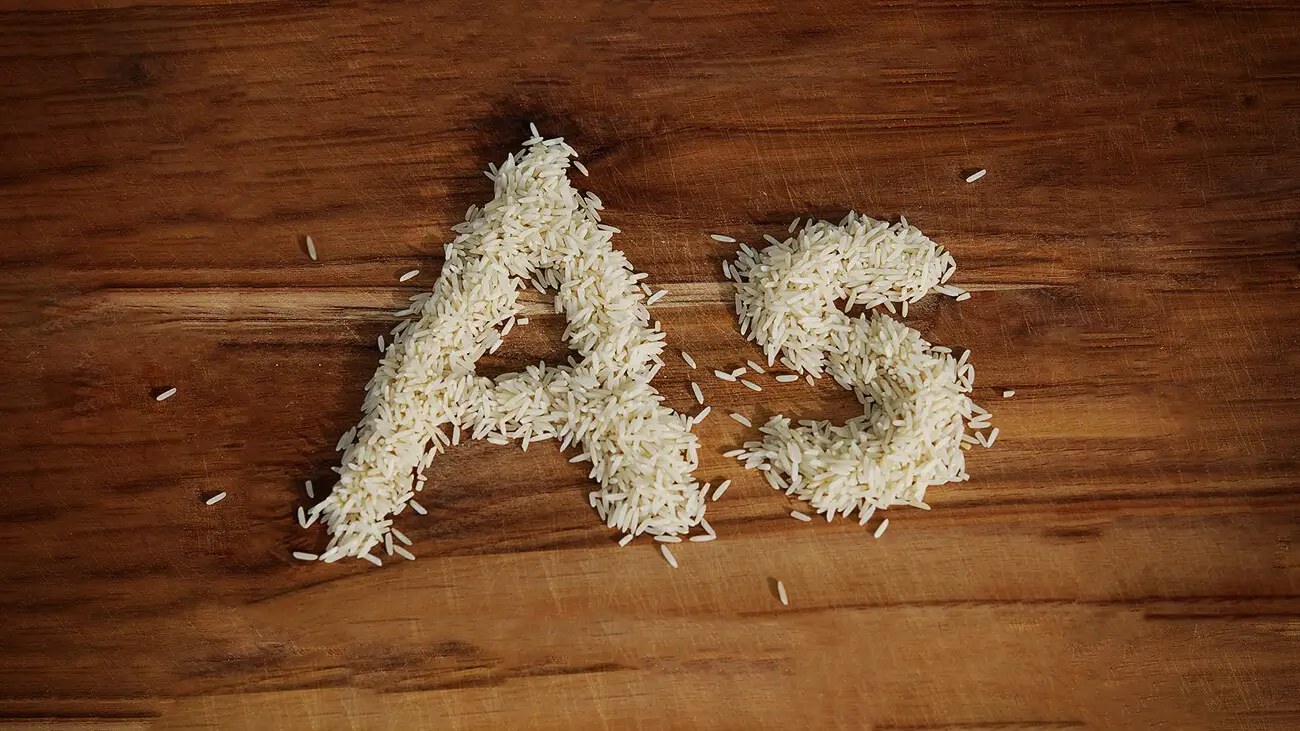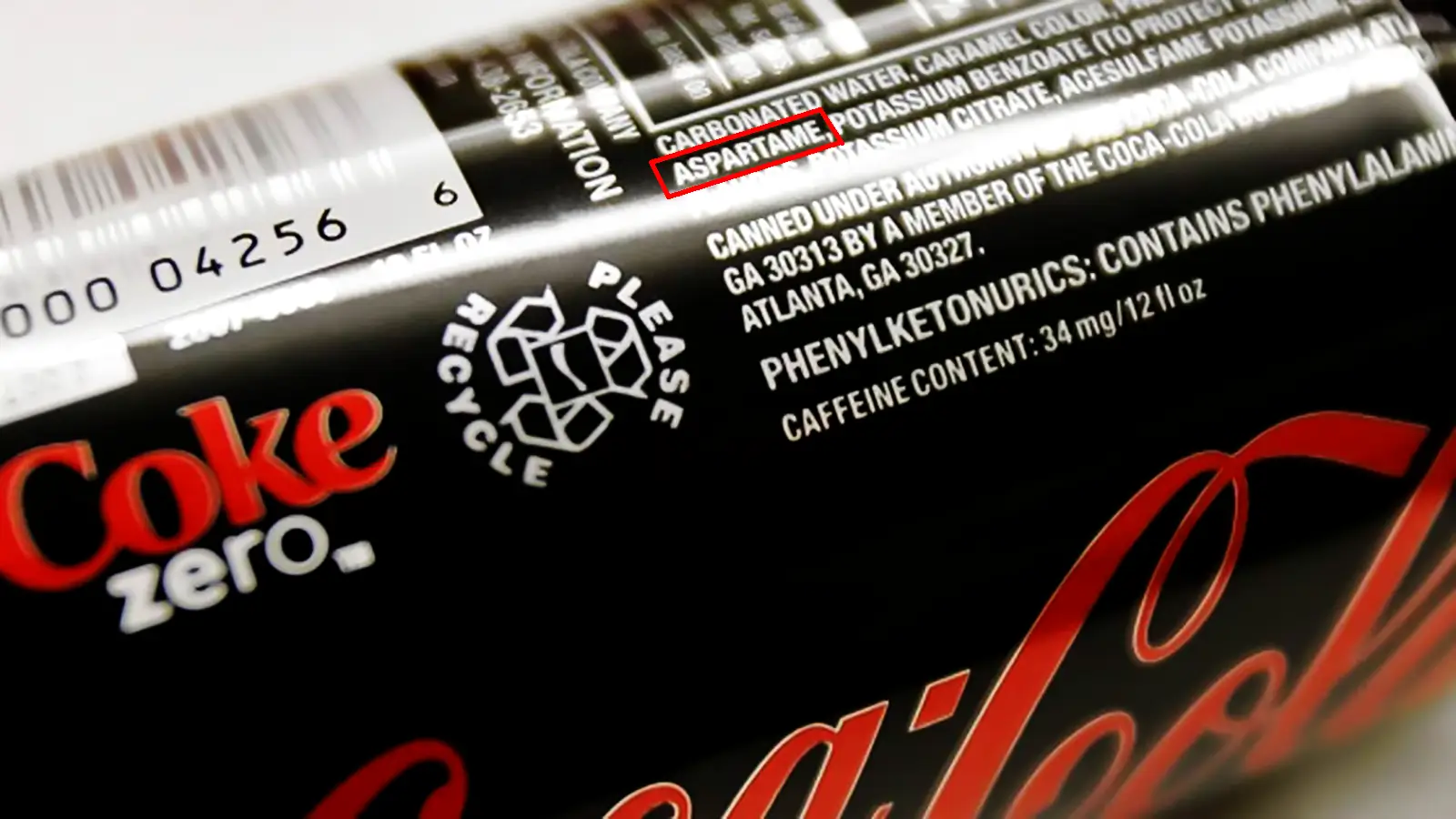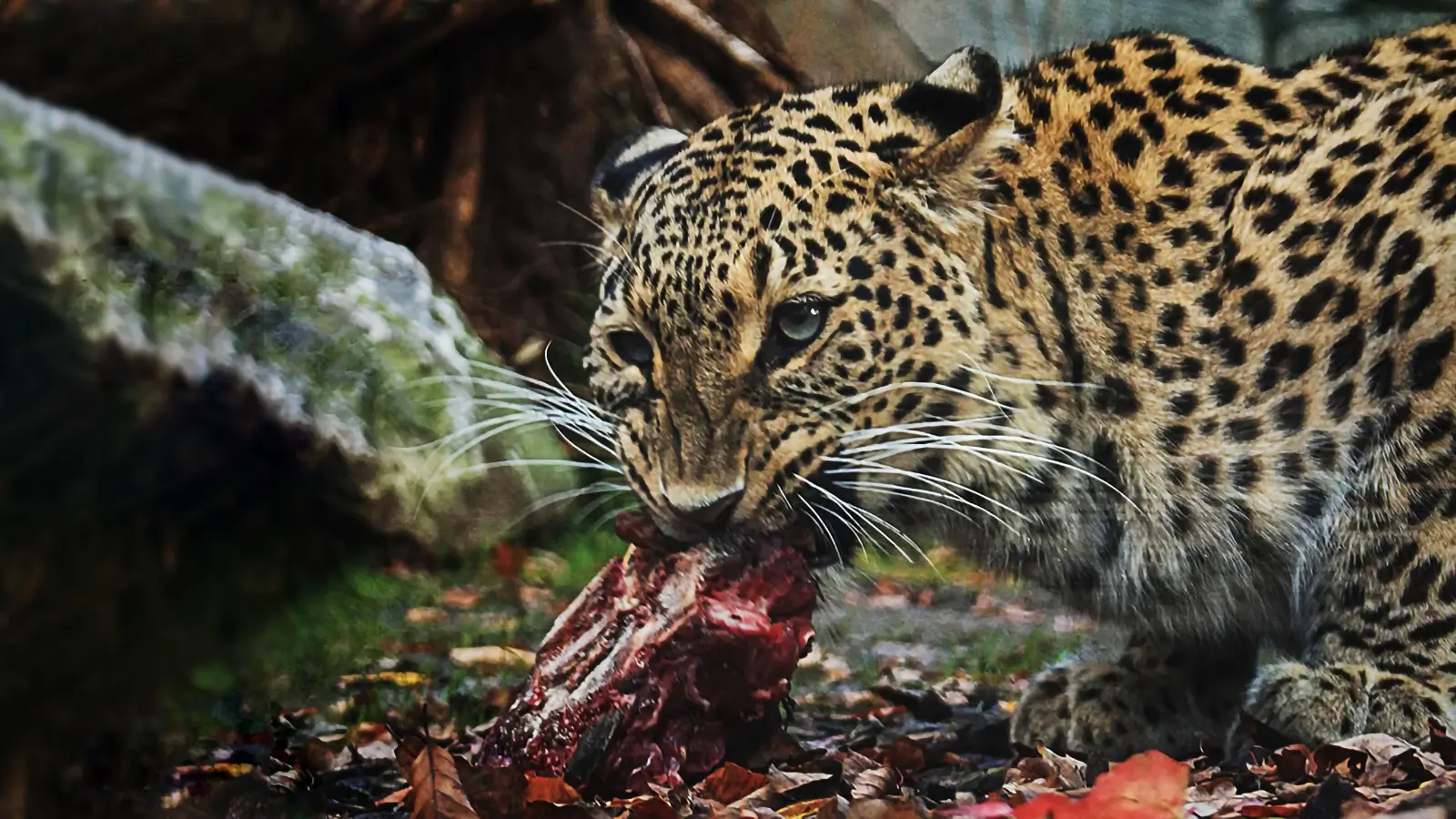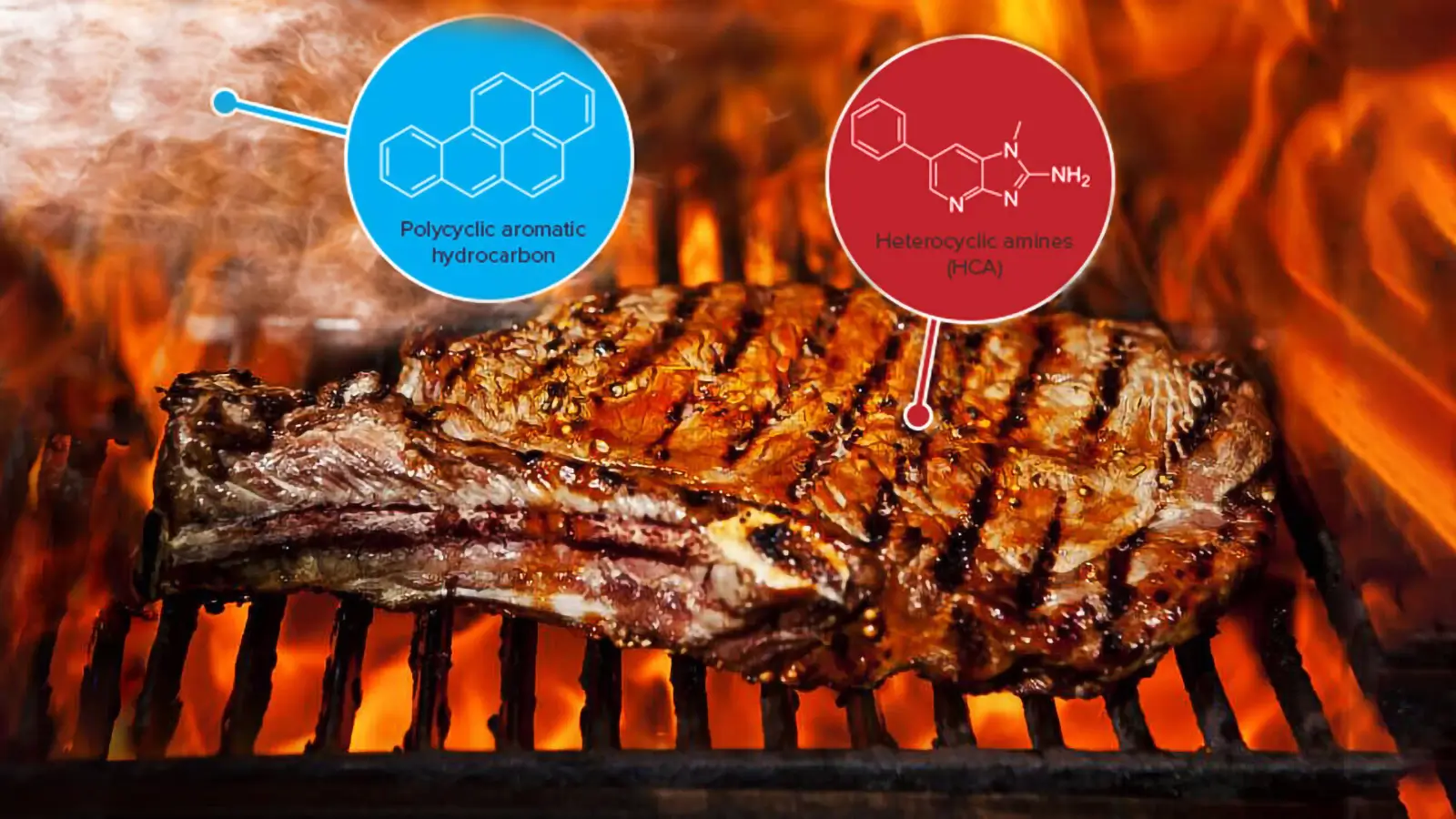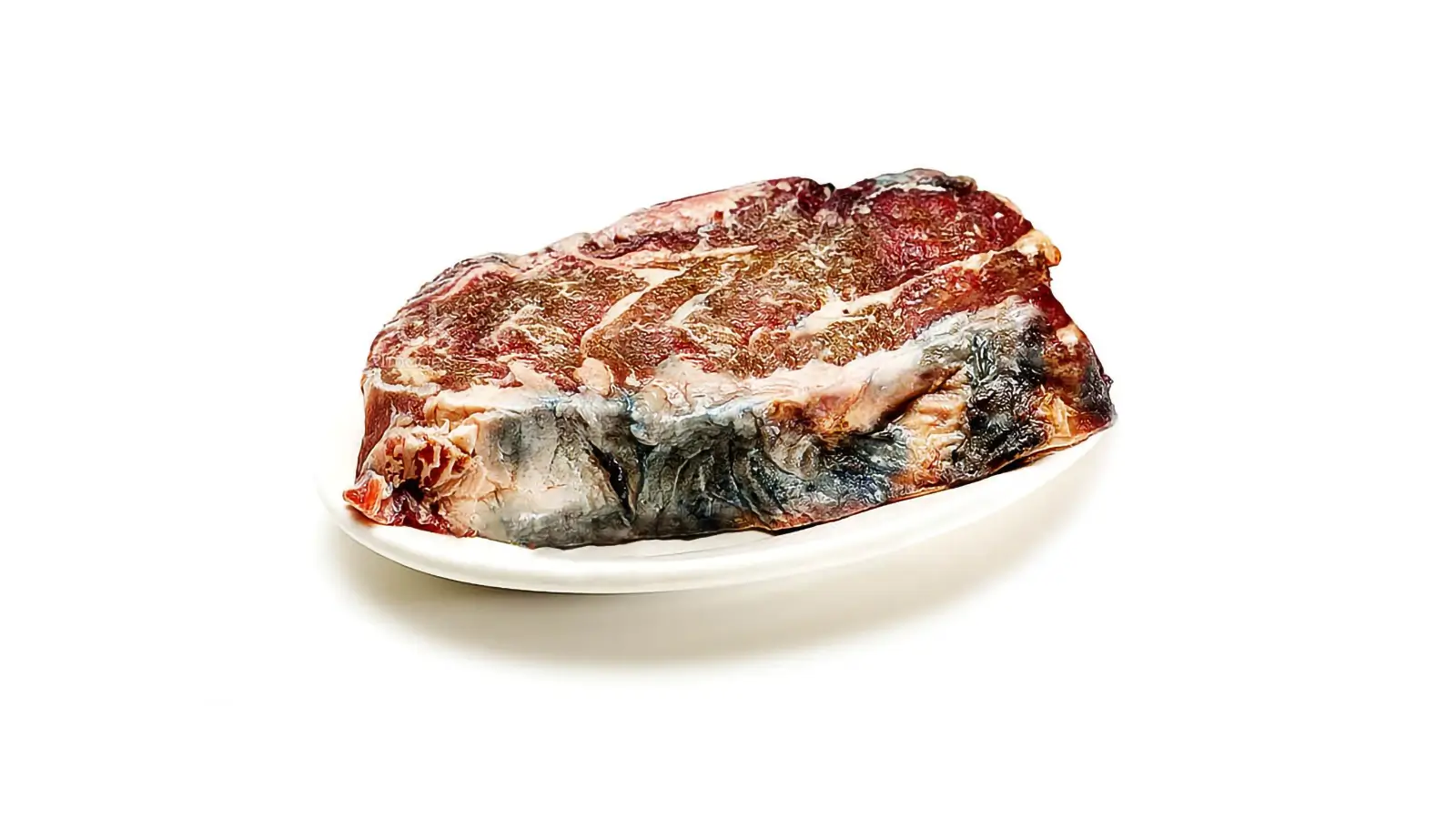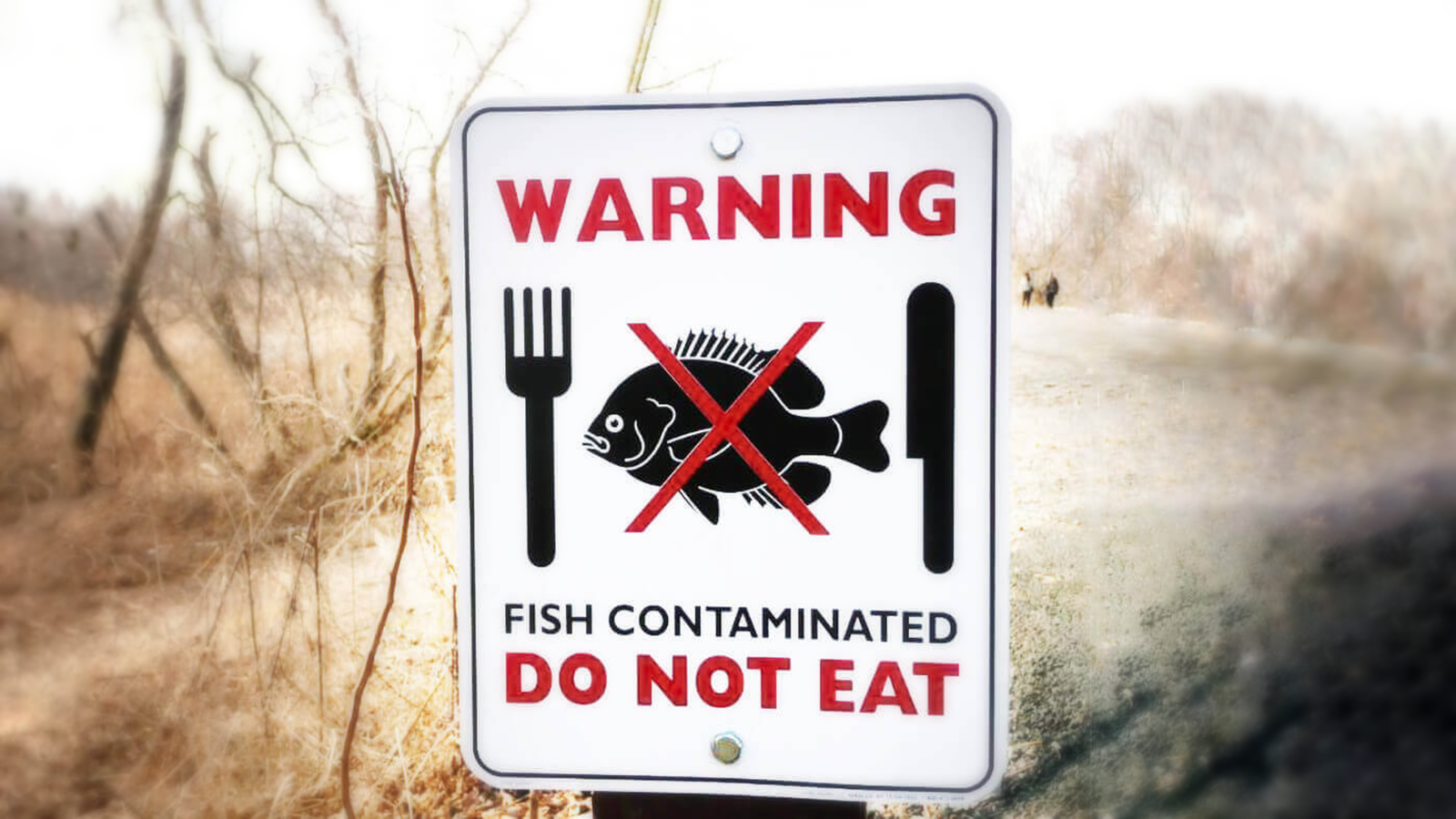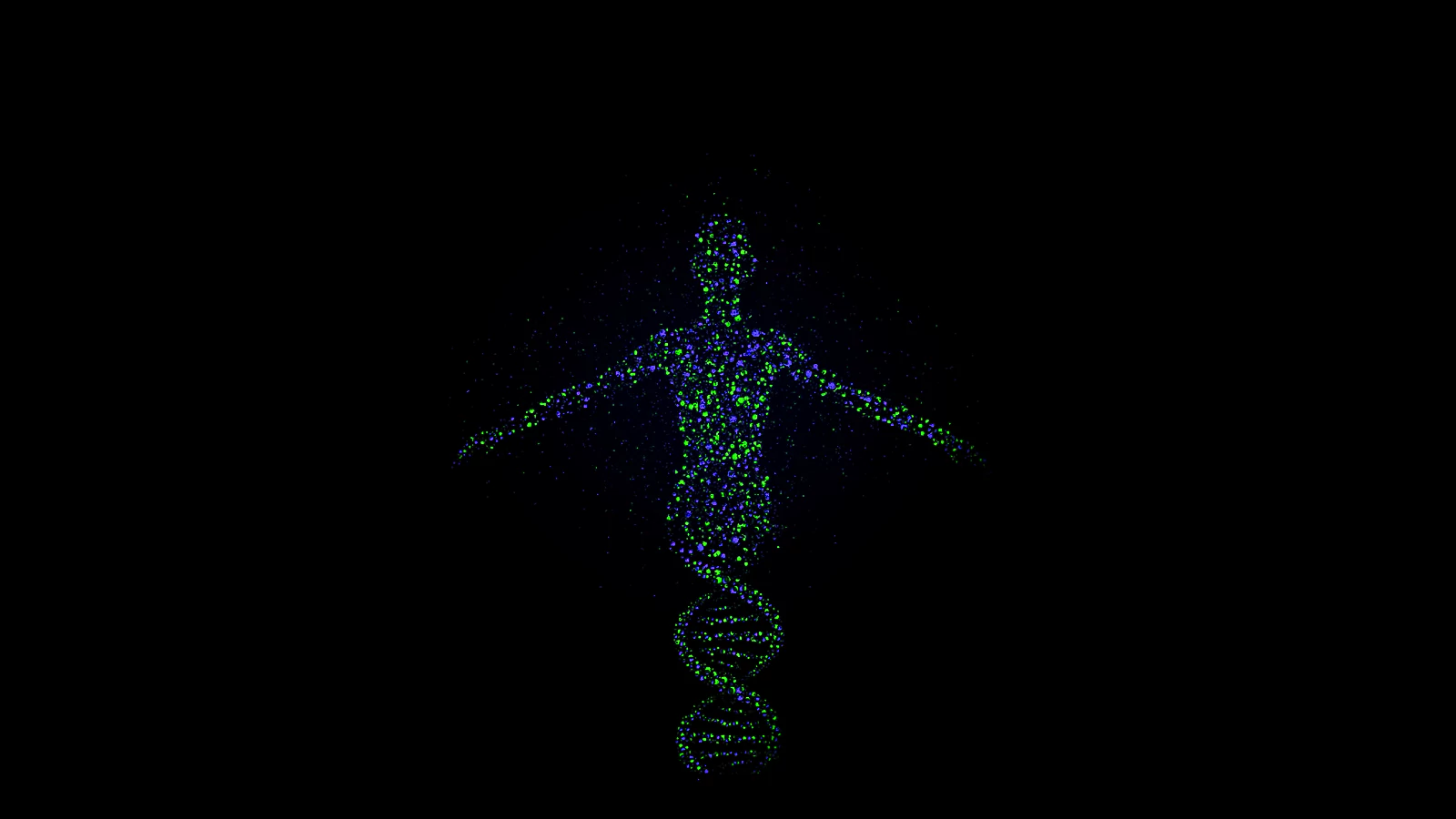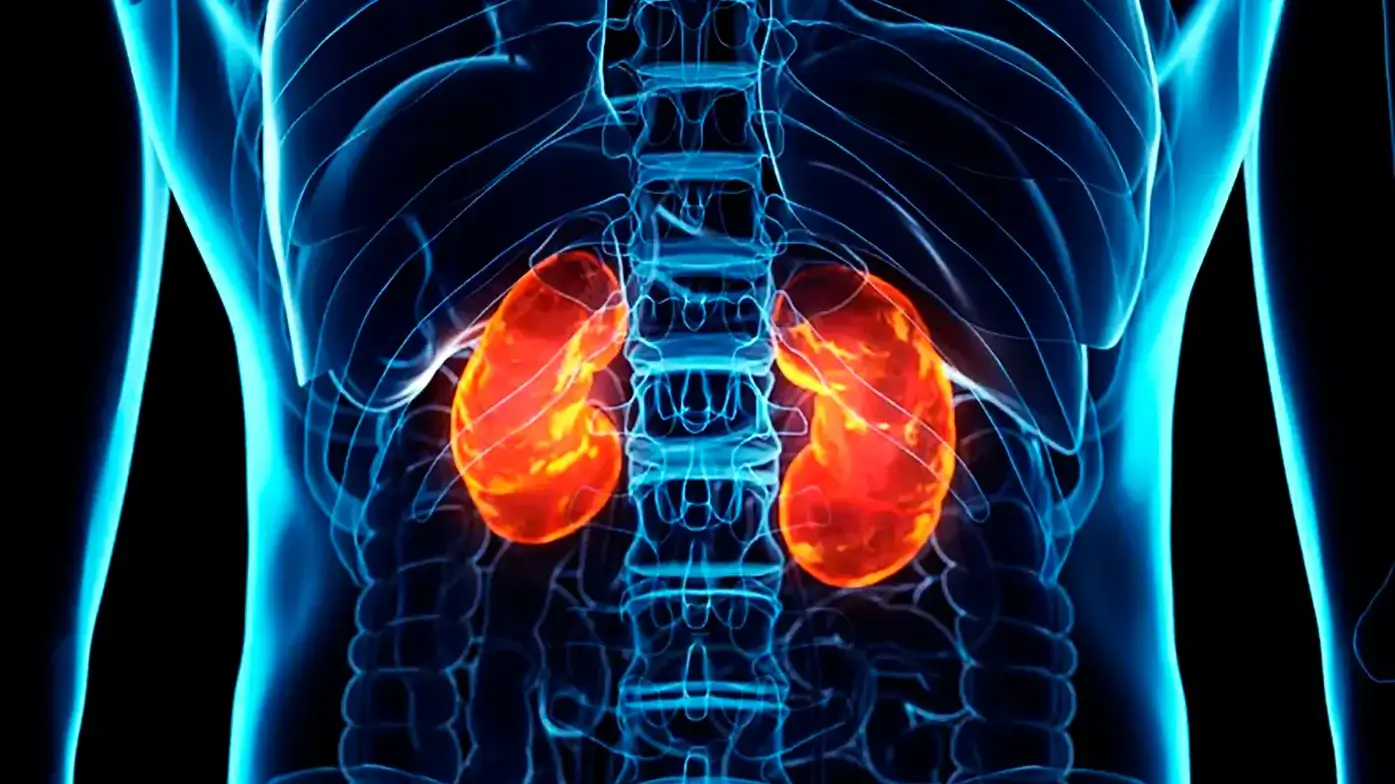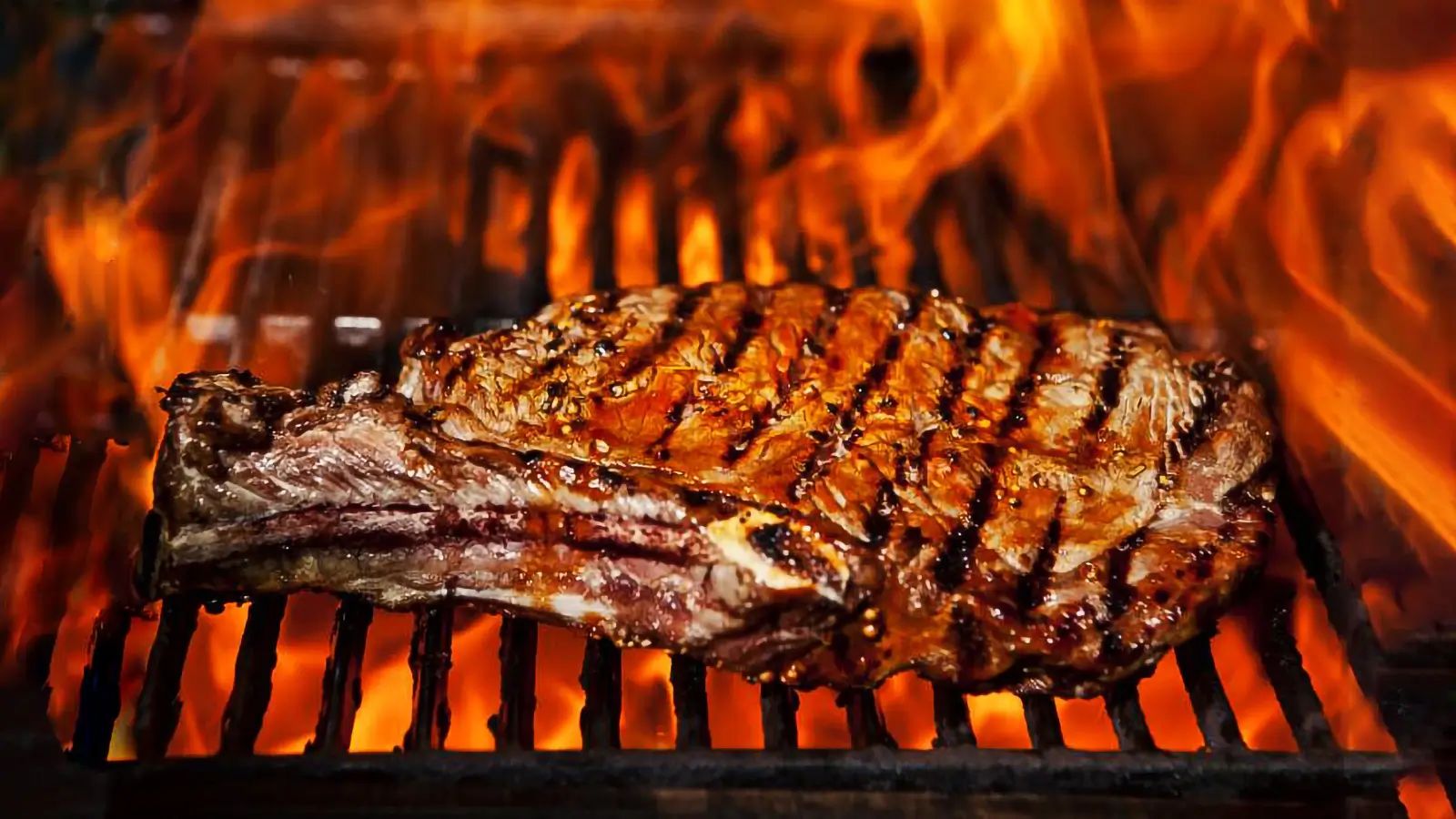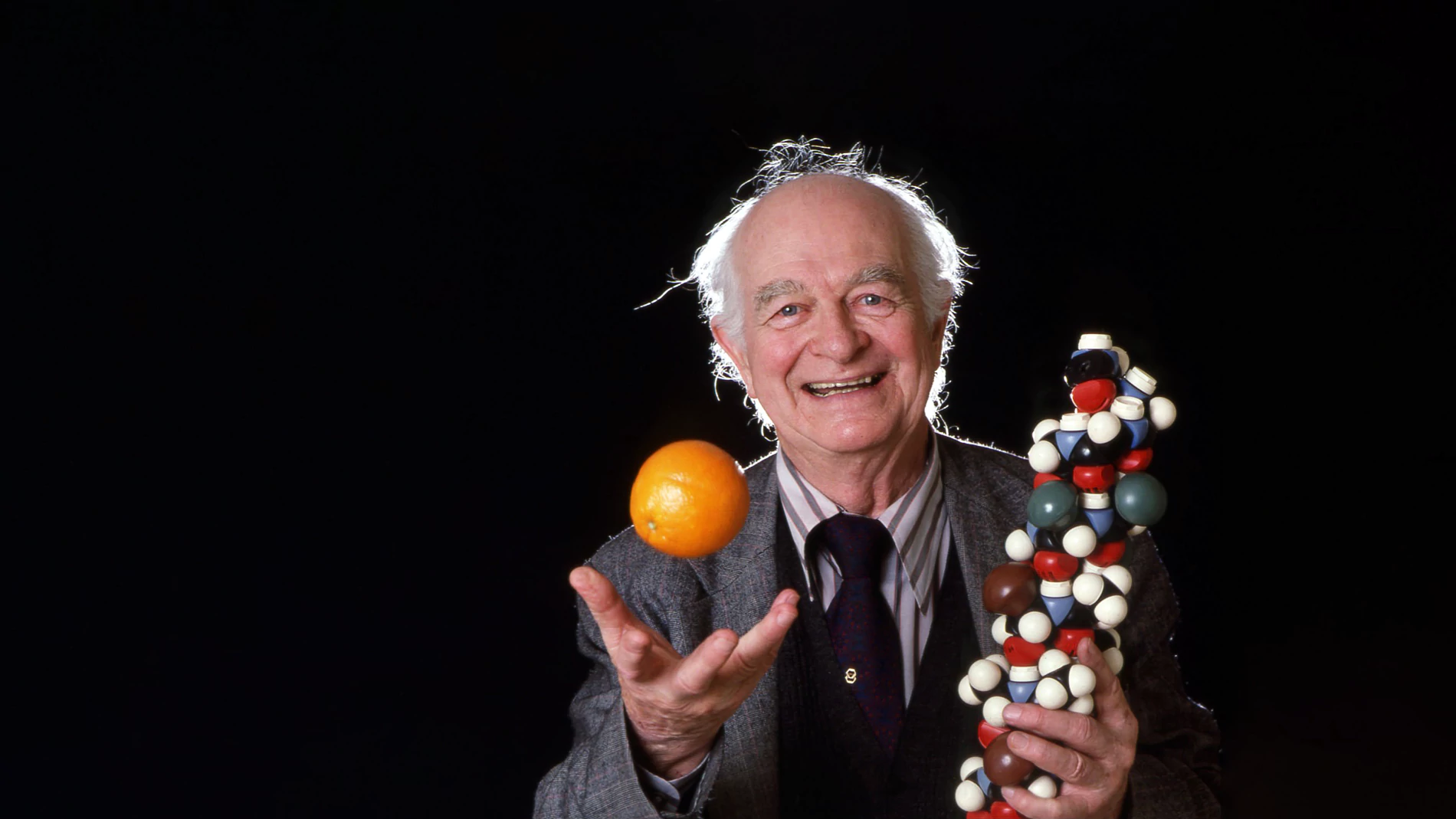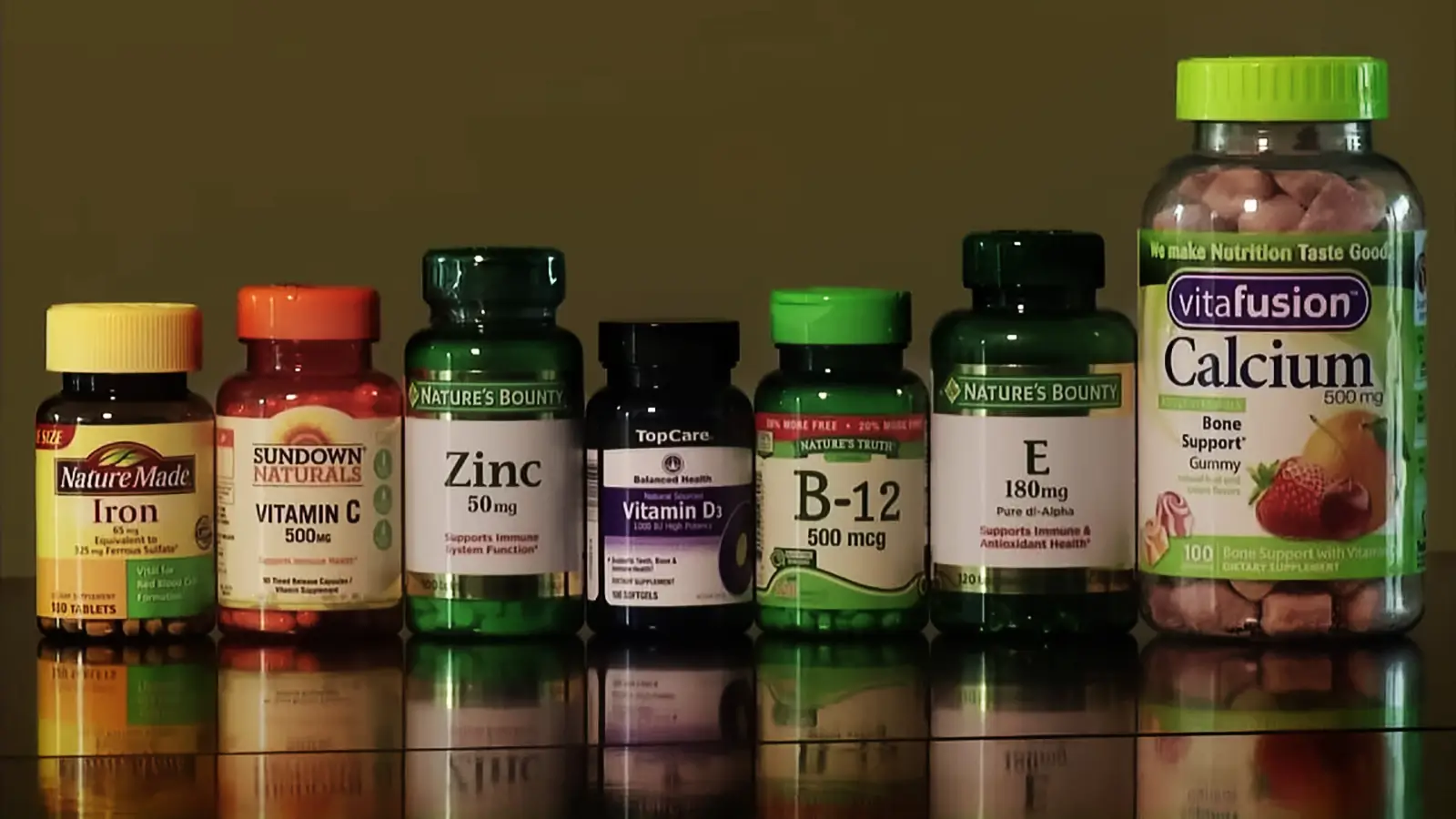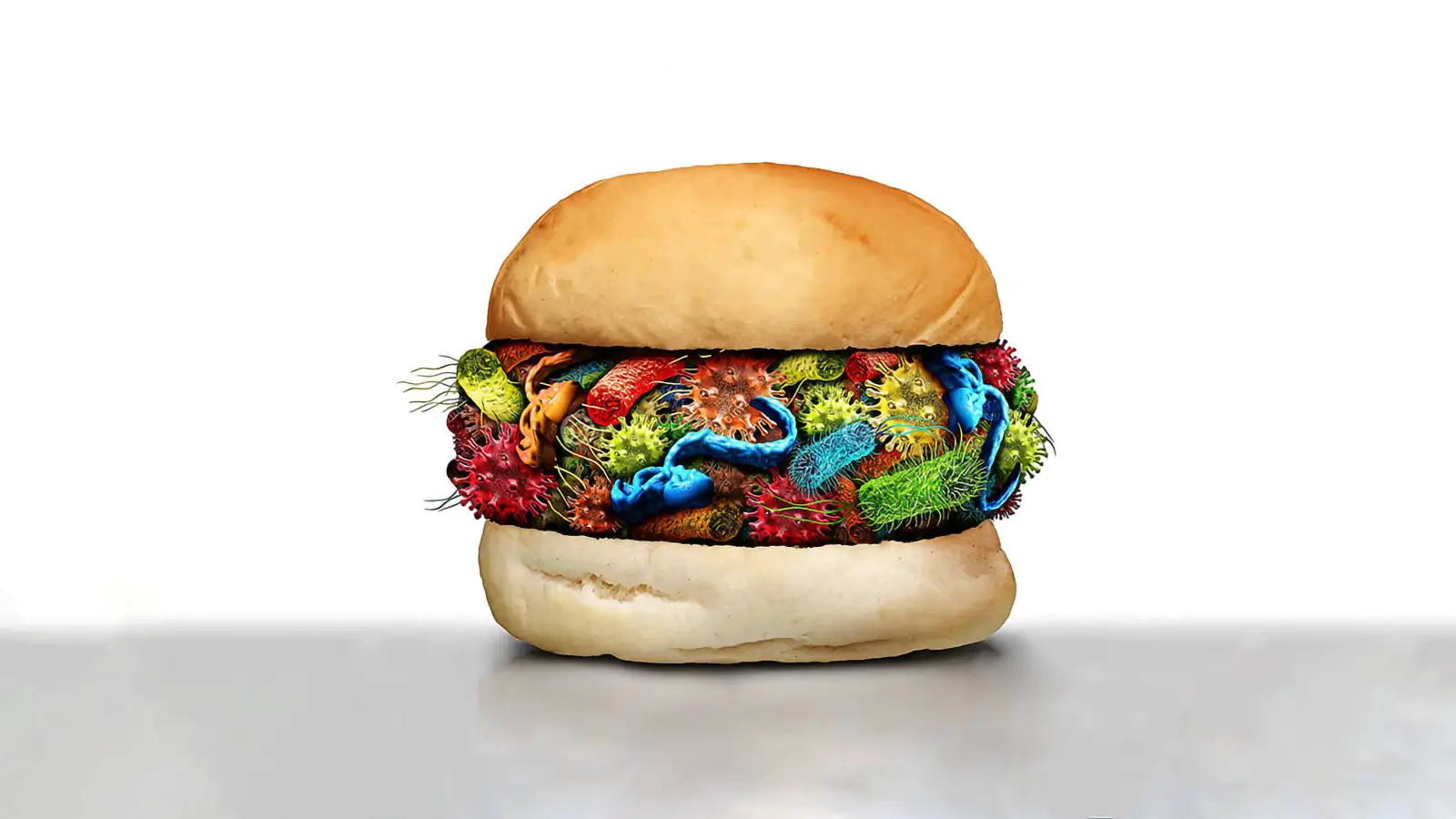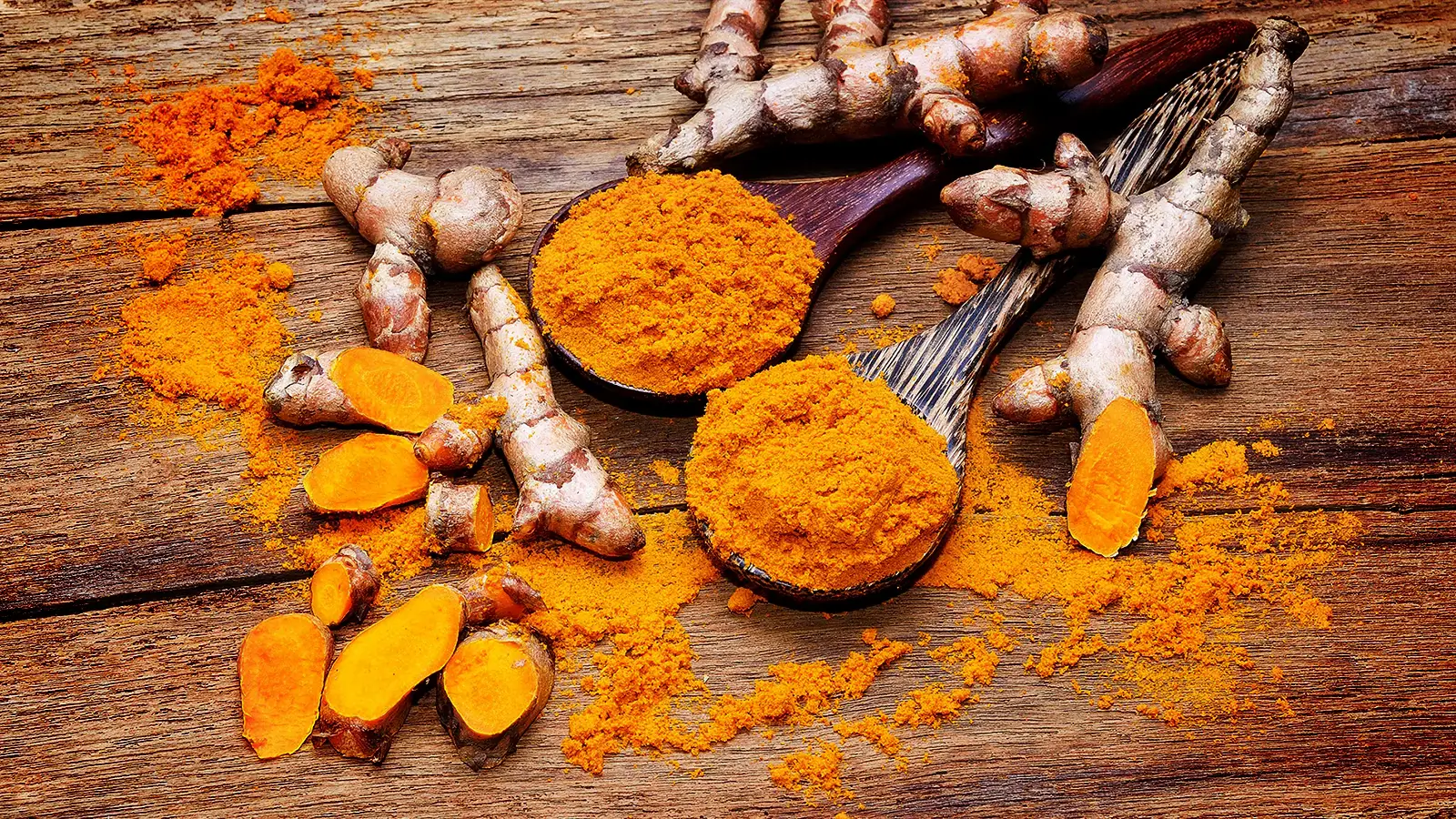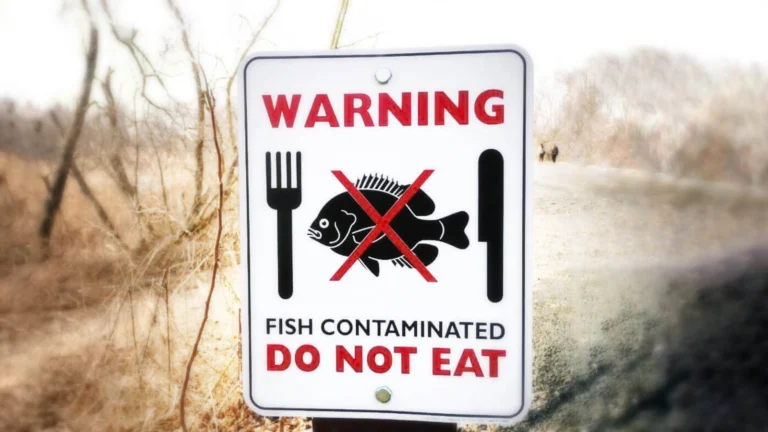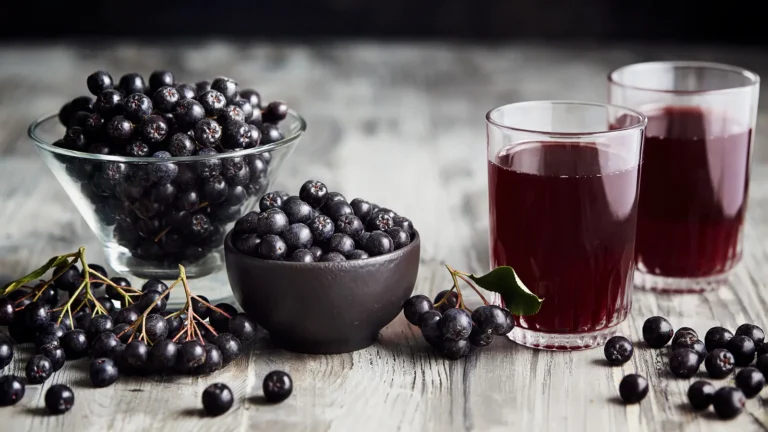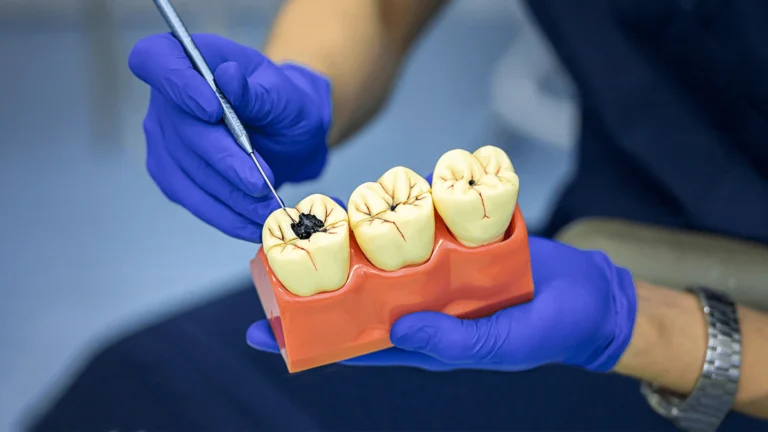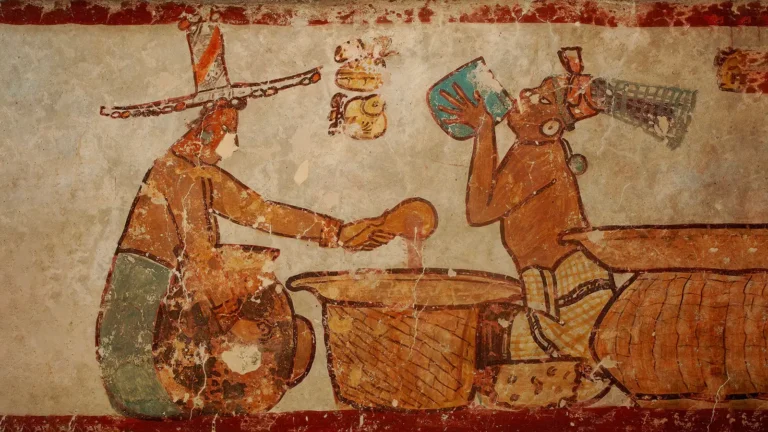Complete Protein: IGF-1 Signaling in Cancer Formation
When you eat animal protein you have four times the chance to develop all types of cancer. When you smoke you have a four-time chance to develop lung cancer.
Milos Pokimica
Written By: Milos Pokimica
Medically Reviewed by: Dr. Xiùying Wáng, M.D.
Updated May 27, 2023Key Takeaways:
– Consuming excessive amounts of complete protein can increase the levels of Insulin-like growth factor (IGF-1) hormone, which has been linked to cancer growth and metastasis.
– Plant-based diets have been shown to significantly lower IGF-1 hormone levels in the bloodstream over time compared to high-meat diets.
– Reducing or eliminating animal-based protein consumption can have positive impacts on health over time.
– Beans are one of the best plant-based sources of protein as they provide high protein content with zero cholesterol, and saturated fat, and are full of fiber and antioxidants.
– It is possible to build muscle without excess protein intake.
Some food products have high levels of all essential amino acids in them. That will be all proteins from the animal kingdom. All proteins that come from eggs, meat, and dairy are “complete.”

Meat is meat in sort of speaking and protein is similar in proportions of amino acids that it has. Some of the plant sources also have “complete“ protein like soy for example.
Eating complete protein is not a good idea because it will raise the levels of the Insulin-like growth factor (IGF-1) hormone and that is not something you want. IGF 1 is a cancer-promoting hormone.
There is a greater link between IGF 1 level and overall cancer than between smoking and lung cancer for example. That is a hormone that basically goes around your body and let’s say it this way knocks on the cell door. When the lady of the house opens the door IGF 1 will say:
“Hello, how are you doing, I just come by to say to you that if you need to divide or repair something in your house we have all of the essential amino acids in the street right now “.
The response from a normal cell will be: “No thank you we are ok, and everything is fine,” but a cancer cell will just say:
„Thank you, sir, let’s have a dividing party.”
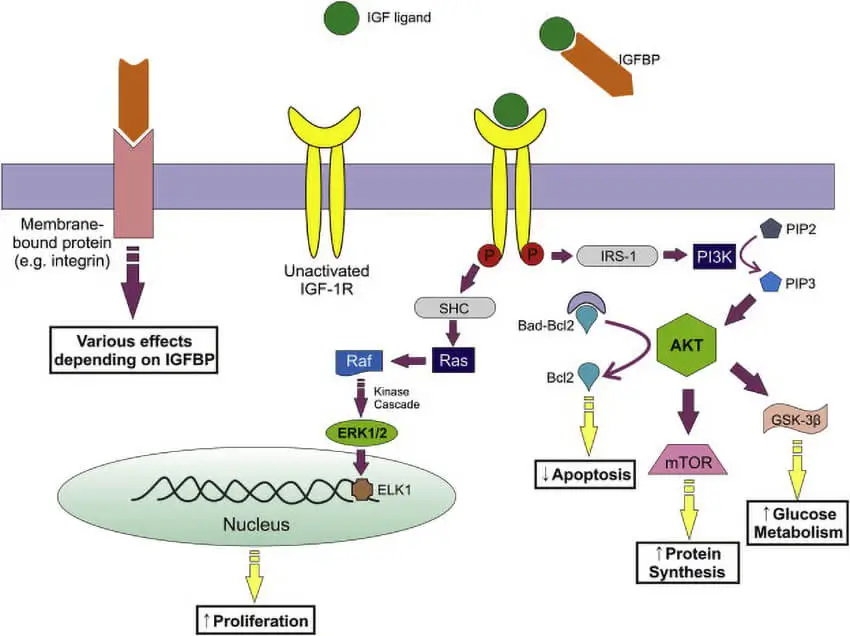
Chronically elevated levels of IGF 1 is not something anybody as an adult person should want, including bodybuilders. Most of the studies find no correlation between protein intake and IGF 1 and that will be a response from your doctor and industry.
However, guess what, it is one more lie.
These studies did not take into account animal versus plant protein. In this study (Allen et al., 2002) they did exactly that.
Higher IGF 1 levels were only associated with eating complete protein, meaning all of the animal protein but also soy protein as well.
Actually, regular plant protein seems to decrease the levels of IGF 1. The conclusion was that it is not the excessive protein in general that raises the cancer-promoting IGF 1 level but only the “complete“ protein. IGF 1 is so bad that it not only that it helps all types of cancer to grow but also helps them to break off from the main tumor and migrate to the bloodstream and other parts of the body creating metastatic tumor cells (Kleinberg et al., 2009). It is not a tumor that will kill you in 95 percent of cases it is a metastatic tumor all over the body. What helps breast cancer cells to migrate to the liver, bone, brain, and lungs? It is IGF 1(Yang et al., 2011).
There is a rare genetic mutation a syndrome that some people have that lead to dwarfism as a consequence of the low level of IGF 1 creation. It is called Laron Syndrome (a type of dwarfism).

They never, let me write this again, they never get cancer (Guevara-Aguirre et al., 2011).
In this study cancer death rate in these people was zero. Not just that they tend to live much longer. Vegans also tend to live longer them meat eaters and even when we look at the animal kingdom. Plant-eating species tend to live longer than carnivores. In 1993 there was a great breakthrough in the science of longevity. To date, it was a study that managed to prolong the life of specific species of roundworm to double the amount. It was so far the longest recorded life extension in any study.
There was one mutation that was found that doubled the lifespan of roundworms from 30 to 60 days (Kenyon et al., 1993).
It was as same as people would live for 160 years and be healthy. And it was just one single mutation that did that much. When we consider the topic of aging, we think of telomere length, DNA free radical damage, multiple other processes, and so on. But no it was just one single mutation that did only one thing. That one gene scientist named the Grim Reaper gene was just malfunctioning in IGF 1 receptor gene. If you eat animal protein, you not just expose yourself to cancer risk but also speed up the aging process. Science today can create artificial retroviruses that can cause mutations. In the future, it might be believable to have a vaccine that will deactivate the IGF 1 receptor in adult humans as well to some extent and prolong our life for double the amount but for now just avoid animal protein.
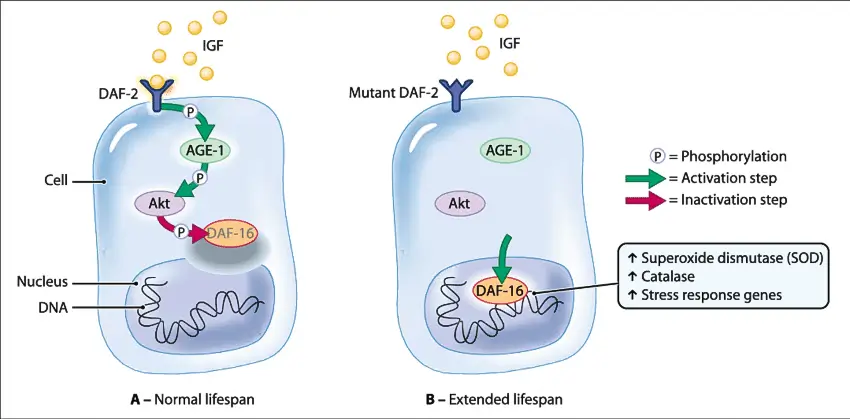
When we switch people to eating plant-based, we can significantly lower the levels of IGF 1 in the bloodstream.
In one study the result was that people eating for 14 years plant-based diet had half the levels of IGF 1 in the bloodstream than meat-eaters (Ngo et al., 2002). And you have to be a vegan not vegetarian. In this study, they compared the IGF 1 levels of vegans, lacto ovo vegetarians, and meat eaters, and only vegans had lower circulation IGF1 levels (Allen et al., 2002). Milk and eggs are still complete animal proteins, so the result is understandable. This was a study on a woman, but later studies on men and women showed the same thing.
In one study they compared the statistical correlation between smoking and lung cancer and high animal protein consumption and overall cancer risk and the correlation was even worse for the protein (Levine et al., 2014).
This was a recent study done in 2014 with the conclusion:
” Mice and humans with growth hormone receptor/IGF-1 deficiencies display major reductions in age-related diseases. Because protein restriction reduces GHR-IGF-1 activity, we examined links between protein intake and mortality. Respondents aged 50-65 reporting high protein intake had a 75% increase in overall mortality and a 4-fold increase in cancer death risk during the following 18 years.“
(Levine et al., 2014)
When you eat animal protein you have four times more chance to develop cancer. When you smoke, you have four-time also more chance to develop lung cancer.
Some of the press wrote about this study creating widespread anger among medical practice and also among the general population as well. What was the response from the medical community? Gunter Kuhnle, a food nutrition scientist not some regular but specifically nutrition scientist at Reading University, said:
“It was wrong and potentially even dangerous to compare the effects of smoking with the effect of meat and cheese as the study does. Sending out [press] statements such as this can damage the effectiveness of important public health messages. They can help to prevent sound health advice from getting through to the general public. The smoker thinks: Why to bother quitting smoking if my cheese and ham sandwich is just as bad for me”
Gunter Kuhnle
The real message is that the cancer epidemic is caused by animal protein.
Or let’s be precise here complete protein in general. Don’t eat animal protein there is enough protein in plants. Actually, all the protein ever created on planet Earth is created by plants. All essential proteins are in the plants first, and animals get them after eating plants. Animals only grow by eating plants that have made all of the essential proteins. Then some predators eat other animals and so on. Remember that all essential amino acids and all proteins on the entire planet were made by and only by plants.
The only one actually incomplete protein in the entire food supply is gelatin, so only and only protein source we could not live on is jello.
On the other hand, there is only one truly perfect protein for us not counting mother’s milk. The highest quality protein on the planet for us is our own human flesh.

Although we do not practice cannibalism anymore there is evidence we ate Neanderthals and other primates, so we practice a form of fellow mammal cannibalism. We do not like anything out of the mammalian kingdom too much like insects or reptiles. We prefer our own. It is all because we need that protein. Or how about this? Did you know that beans have as much protein as regular meat with zero cholesterol, saturated fat, dead bacteria endotoxins, full of fiber antioxidants, and resistant starch?
| Type of Bean | Protein (g) | Carbohydrate (g) | Calories |
|---|---|---|---|
| Pinto | 8 | 22 | 122 |
| Adzuki | 9 | 29 | 147 |
| Anasazi | 7 | 23 | 115 |
| Cannellini | 10 | 32 | 179 |
| Chickpea | 7 | 22 | 134 |
| Edamame | 11 | 10 | 120 |
| Fava | 10 | 26 | 187 |
| Garbanzo | 7 | 22 | 134 |
| Kidney | 8 | 20 | 112 |
| Lentil | 9 | 20 | 115 |
| Lima | 7 | 21 | 108 |
| Mung | 14.2 | 39 | 212 |
| Pea | 4.3 | 12.5 | 67 |
| Soybean | 14.3 | 10 | 149 |
| Split Pea | 8 | 21 | 116 |
This entire concept that there is somehow incomplete protein and that plant protein is inferior to an animal is just another lie designed and produced by the same people who use science as a tool for marketing. The lie we accept and use as justification for our own desire for animal flesh.

The entire myth of protein quality was made from one rodent study done more than a hundred years ago that find that infant rats do not grow as well on plants as much as on animal protein. Yes, I am not kidding that was one study that grew to be a myth about protein completeness. Later it was pushed into the mainstream first time by some paid scientists in the 75 issue of Vogue Magazine.

Infant rats, by the way, don’t grow well on human milk either because human milk has ten times less protein than rat milk. Rat milk has so much protein in it because the rats grow fast and human babies do not. The more protein in milk the faster the species is growing. How much protein do you think human breast milk has?
Human milk has 9,5 grams of protein per liter. Rat milk has 86.9 grams of protein per liter. Human breast milk has the lowest protein percentage of all in existence mammalian milks. Less than 1 percent protein by weight.
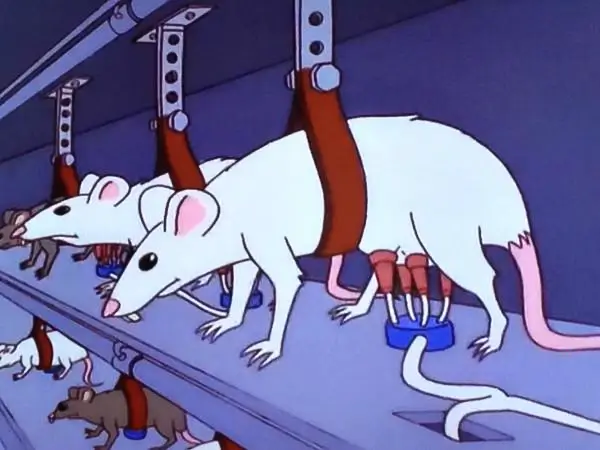
What bodybuilders really should do is find and drink some rat’s milk. That will grow the muscle with no need for a whey protein supplement. What about vegan bodybuilding, or what about vegetarians, or what about everyone? How much protein, in reality, do the different types of diets have?
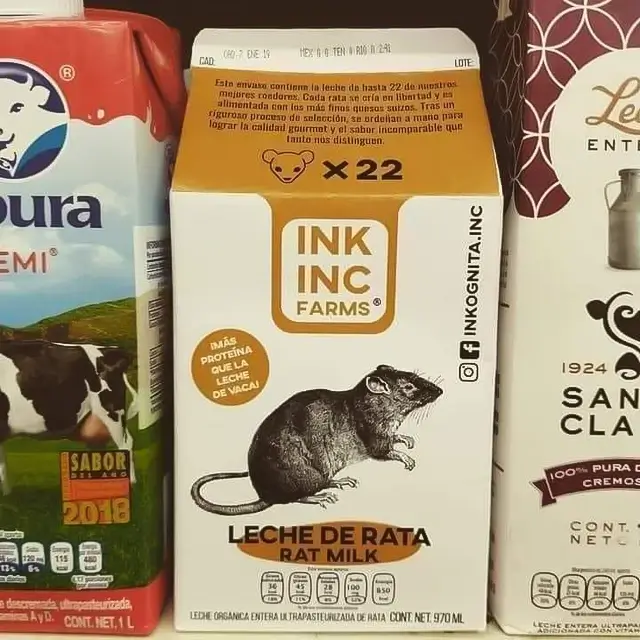
In this study (Rizzo et al., 2013) they analyzed the average intake of protein by comparing different diets. It was the largest study of this kind to date. They compared nutrient diet profiles of about 5,000 vegans, 30,000 standards all-you-desire meat eaters, flexitarians, and 20,000 vegetarians, then divided them into groups from Lacto-ovo, pesco to strict and semi, and so on. The result is that all of the groups average about the same, around 60 for strict vegans to 90 grams for standard meat eaters of proteins a day. Except that nonvegetarians had the lowest intakes of phytochemicals and antioxidants and fiber, beta-carotene, and magnesium with the highest intakes of cholesterol, toxins of all kinds,s and saturated, trans, arachidonic, and docosahexaenoic fatty acids. If we ask the natural science of today, the consensus is that at the most you need 0.8 to 0.9 grams of protein per kilogram and not counting all of the excess fat in obese people. Just fat-free body weight (Millward, 2012).
This is extremely excessive and is correlated to a wide range of health complications and diseases. More about in this correlated article (High protein diet- Health risk correlations).
The other side of the coin is that IGF and mTOR are both the most powerful antagonists of autophagy.
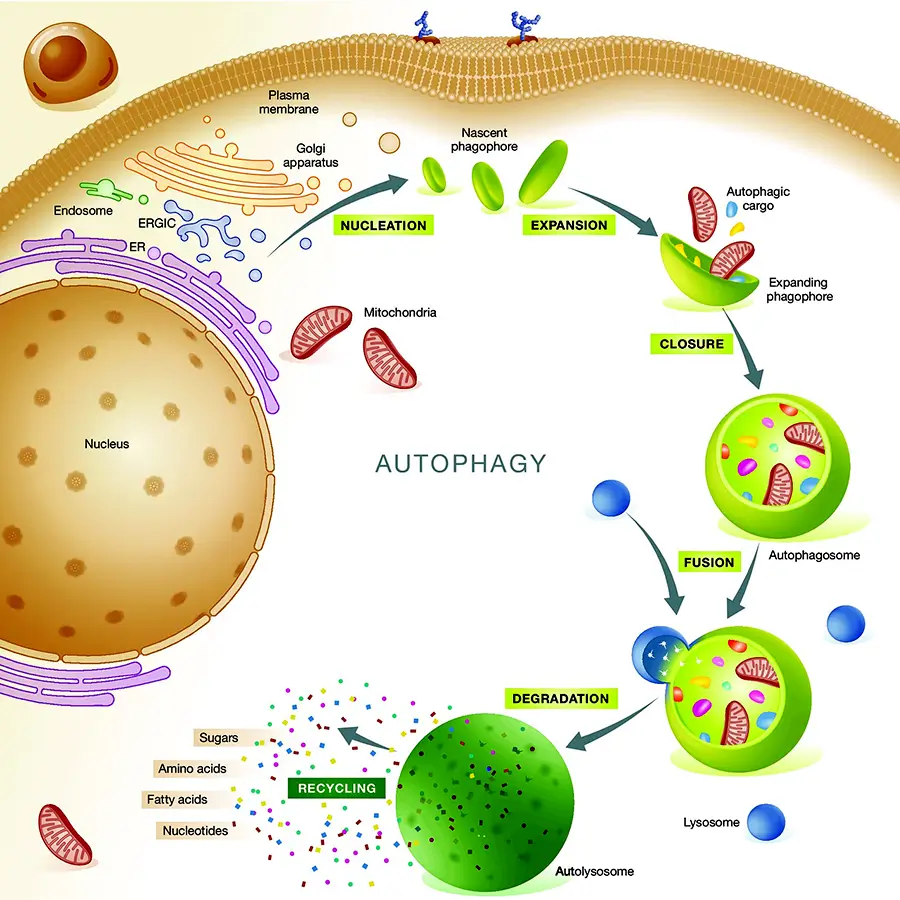
Inadequate levels of autophagy or in most cases completely lacking even small amounts of it will increase mutation and DNA damage accumulation in time and will increase cancer risk independently from IGF promotion of cancer cell proliferation.
The truth that the industry doesn’t want to mention Is exactly this. When you eat complete protein it is complete and the most powerful carcinogen known. It is not just red meat but complete protein in general on top of all inflammation and bioaccumulation of toxins in meat. If this truth has any impact on people’s dietary choices is for debate. But science is science and avoiding the subject is only in the interest of the industry and it is just fulling the underline desire for highly palatable foods as a source of gratification.
Bodybuilders for example will eat an average of more than 200 grams of protein per day. Physiologically it is not possible to grow more than 10 grams of protein per day (which is around 50 grams of tissue) if you are not on steroids no matter how much protein you eat or how much you exercise. Even strict vegans can do bodybuilding if the protein is an issue. Other types of athletes usually eat much more than average amounts also. Some keto paleo health advocates will eat 10 eggs for breakfast. To some people, they are health gurus.

There is a trend to eat large amounts of complete protein to lose weight. The logic behind it is that a large amount of complete protein will stimulate the larger release of IGF 1 hormone that will stop the autophagy of the muscle mass and only focus the weight loss on fat tissue. And that argument is correct.
It is scientifically proven, that you can eat a large amount of complete protein on dieting to stop autophagy of muscle tissue to some extent.
However, do you want cancer as a result of looking good?
This one study was published in Cancer Research (Knuppel et al., 2020). It is a free study and you can go and read it. This study analyzed almost 400,000 samples and confirmed that higher blood levels of IGF-1 are a risk factor for cancer. This is not something that can be debunked in any form and in any way. It is just inconvenient truth that won’t go any further regarding dietary guidelines in any form. Especially because we have health gurus that preach high-quality high protein diets as an answer to obesity, athletic performance, and diabetes and especially building muscle tissue and all of the keto paleo people and industry-funded research….
If you want to stop catabolism during dieting because you are a professional athlete you can just take 1000mg of Metformin a day. It will diminish the liver’s ability for gluconeogenesis and metformin as a supplement is proven to extend lifespan and lower IGF-1 at the same time. It is commonly prescribed in the same way as aspirin as a longevity drug. This would be a subject for other articles.
The real question for vegans here is not where you get your protein but how to avoid the excess. Especially how to avoid an excess of animal protein in the standard American diet.
The correct approach in my view is to tell people the truth and if they still want to consume the standard American diet then there are still some interventions that can potentially lower the cancer risks even if you do not want to change the dietary habits. For example, you can try to lower chronic inflammation with high antioxidant-rich foods, you can try to avoid exec of toxicity, you can fast periodically, you can avoid micronutrient deficiencies, you can use some of cancer-killing herbs and supplements that have scientific baking like curcumin and so on.
Insulin-like growth factors (IGF) 1 and 2 stimulate the development and progression of different types of cancer. This animation helps to educate and inform about the various pathways associated with IGF 1 and 2, highlighting the mechanism behind a monoclonal antibody developed by Boehringer Ingelheim, which binds to and neutralizes these ligands.
There is a tradeoff when it comes to growth hormone and IGF-1. Growth hormone and IGF-1 enhance muscle and cognitive performance but this comes at a cost: longevity. Reduced growth hormone and IGF-1 increase lifespan by increasing the expression of genes involved in stress resistance but at an expensive cost when it comes to muscles and the brain. Learn all about the trade-off and ways to circumvent it.
FAQ
References:
- Allen, N. E., Appleby, P. N., Davey, G. K., Kaaks, R., Rinaldi, S., & Key, T. J. (2002). The associations of diet with serum insulin-like growth factor I and its main binding proteins in 292 women meat-eaters, vegetarians, and vegans. Cancer epidemiology, biomarkers & prevention : a publication of the American Association for Cancer Research, cosponsored by the American Society of Preventive Oncology, 11(11), 1441–1448. [PubMed]
- Kleinberg, D. L., Wood, T. L., Furth, P. A., & Lee, A. V. (2009). Growth hormone and insulin-like growth factor-I in the transition from normal mammary development to preneoplastic mammary lesions. Endocrine reviews, 30(1), 51–74. https://doi.org/10.1210/er.2008-0022
- Yang, S. Y., Miah, A., Pabari, A., & Winslet, M. (2011). Growth Factors and their receptors in cancer metastases. Frontiers in bioscience (Landmark edition), 16(2), 531–538. https://doi.org/10.2741/3703
- Guevara-Aguirre, J., Balasubramanian, P., Guevara-Aguirre, M., Wei, M., Madia, F., Cheng, C. W., Hwang, D., Martin-Montalvo, A., Saavedra, J., Ingles, S., de Cabo, R., Cohen, P., & Longo, V. D. (2011). Growth hormone receptor deficiency is associated with a major reduction in pro-aging signaling, cancer, and diabetes in humans. Science translational medicine, 3(70), 70ra13. https://doi.org/10.1126/scitranslmed.3001845
- Kenyon, C., Chang, J., Gensch, E., Rudner, A., & Tabtiang, R. (1993). A C. elegans mutant that lives twice as long as wild type. Nature, 366(6454), 461–464. https://doi.org/10.1038/366461a0
- Ngo, T. H., Barnard, R. J., Tymchuk, C. N., Cohen, P., & Aronson, W. J. (2002). Effect of diet and exercise on serum insulin, IGF-I, and IGFBP-1 levels and growth of LNCaP cells in vitro (United States). Cancer causes & control : CCC, 13(10), 929–935. https://doi.org/10.1023/a:1021911517010
- Allen, N. E., Appleby, P. N., Davey, G. K., Kaaks, R., Rinaldi, S., & Key, T. J. (2002). The associations of diet with serum insulin-like growth factor I and its main binding proteins in 292 women meat-eaters, vegetarians, and vegans. Cancer epidemiology, biomarkers & prevention : a publication of the American Association for Cancer Research, cosponsored by the American Society of Preventive Oncology, 11(11), 1441–1448. [PubMed]
- Levine, M. E., Suarez, J. A., Brandhorst, S., Balasubramanian, P., Cheng, C. W., Madia, F., Fontana, L., Mirisola, M. G., Guevara-Aguirre, J., Wan, J., Passarino, G., Kennedy, B. K., Wei, M., Cohen, P., Crimmins, E. M., & Longo, V. D. (2014). Low protein intake is associated with a major reduction in IGF-1, cancer, and overall mortality in the 65 and younger but not older population. Cell metabolism, 19(3), 407–417. https://doi.org/10.1016/j.cmet.2014.02.006
- Rizzo, N. S., Jaceldo-Siegl, K., Sabate, J., & Fraser, G. E. (2013). Nutrient profiles of vegetarian and nonvegetarian dietary patterns. Journal of the Academy of Nutrition and Dietetics, 113(12), 1610–1619. https://doi.org/10.1016/j.jand.2013.06.349
- Millward D. J. (2012). Identifying recommended dietary allowances for protein and amino acids: a critique of the 2007 WHO/FAO/UNU report. The British journal of nutrition, 108 Suppl 2, S3–S21. https://doi.org/10.1017/S0007114512002450
- Knuppel, A., Fensom, G. K., Watts, E. L., Gunter, M. J., Murphy, N., Papier, K., Perez-Cornago, A., Schmidt, J. A., Smith Byrne, K., Travis, R. C., & Key, T. J. (2020). Circulating Insulin-like Growth Factor-I Concentrations and Risk of 30 Cancers: Prospective Analyses in UK Biobank. Cancer research, 80(18), 4014–4021. https://doi.org/10.1158/0008-5472.CAN-20-1281
Related Posts
Do you have any questions about nutrition and health?
I would love to hear from you and answer them in my next post. I appreciate your input and opinion and I look forward to hearing from you soon. I also invite you to follow us on Facebook, Instagram, and Pinterest for more diet, nutrition, and health content. You can leave a comment there and connect with other health enthusiasts, share your tips and experiences, and get support and encouragement from our team and community.
I hope that this post was informative and enjoyable for you and that you are prepared to apply the insights you learned. If you found this post helpful, please share it with your friends and family who might also benefit from it. You never know who might need some guidance and support on their health journey.
– You Might Also Like –

Learn About Nutrition
Milos Pokimica is a doctor of natural medicine, clinical nutritionist, medical health and nutrition writer, and nutritional science advisor. Author of the book series Go Vegan? Review of Science, he also operates the natural health website GoVeganWay.com
Medical Disclaimer
GoVeganWay.com brings you reviews of the latest nutrition and health-related research. The information provided represents the personal opinion of the author and is not intended nor implied to be a substitute for professional medical advice, diagnosis, or treatment. The information provided is for informational purposes only and is not intended to serve as a substitute for the consultation, diagnosis, and/or medical treatment of a qualified physician or healthcare provider.NEVER DISREGARD PROFESSIONAL MEDICAL ADVICE OR DELAY SEEKING MEDICAL TREATMENT BECAUSE OF SOMETHING YOU HAVE READ ON OR ACCESSED THROUGH GoVeganWay.com
NEVER APPLY ANY LIFESTYLE CHANGES OR ANY CHANGES AT ALL AS A CONSEQUENCE OF SOMETHING YOU HAVE READ IN GoVeganWay.com BEFORE CONSULTING LICENCED MEDICAL PRACTITIONER.
In the event of a medical emergency, call a doctor or 911 immediately. GoVeganWay.com does not recommend or endorse any specific groups, organizations, tests, physicians, products, procedures, opinions, or other information that may be mentioned inside.
Editor Picks –
Milos Pokimica is a health and nutrition writer and nutritional science advisor. Author of the book series Go Vegan? Review of Science, he also operates the natural health website GoVeganWay.com
Latest Articles –
Top Health News — ScienceDaily
- The overlooked nutrition risk of Ozempic and Wegovyon February 4, 2026
Popular weight-loss drugs like Ozempic and Wegovy can dramatically curb appetite, but experts warn many users are flying blind when it comes to nutrition. New research suggests people taking these medications may not be getting enough guidance on protein, vitamins, and overall diet quality, increasing the risk of muscle loss and nutrient deficiencies.
- A 25-year study found an unexpected link between cheese and dementiaon February 4, 2026
A massive Swedish study tracking nearly 28,000 people for 25 years found an unexpected link between full-fat dairy and brain health. Among adults without a genetic risk for Alzheimer’s, eating more full-fat cheese was associated with a noticeably lower risk of developing the disease, while higher cream intake was tied to reduced dementia risk overall. The findings challenge decades of low-fat dietary advice but come with important caveats.
- MIT’s new brain tool could finally explain consciousnesson February 4, 2026
Scientists still don’t know how the brain turns physical activity into thoughts, feelings, and awareness—but a powerful new tool may help crack the mystery. Researchers at MIT are exploring transcranial focused ultrasound, a noninvasive technology that can precisely stimulate deep regions of the brain that were previously off-limits. In a new “roadmap” paper, they explain how this method could finally let scientists test cause-and-effect in consciousness research, not just observe […]
- Why heart disease risk in type 2 diabetes looks different for men and womenon February 4, 2026
Scientists are digging into why heart disease risk in type 2 diabetes differs between men and women—and sex hormones may be part of the story. In a large Johns Hopkins study, men with higher testosterone had lower heart disease risk, while rising estradiol levels were linked to higher risk. These hormone effects were not seen in women. The results point toward more personalized approaches to heart disease prevention in diabetes.
- Sound machines might be making your sleep worseon February 4, 2026
Sound machines may not be the sleep saviors many believe. Researchers found that pink noise significantly reduced REM sleep, while simple earplugs did a better job protecting deep, restorative sleep from traffic noise. When pink noise was combined with outside noise, sleep quality dropped even further. The results suggest that popular “sleep sounds” could be doing more harm than good—particularly for kids.
- This unexpected plant discovery could change how drugs are madeon February 3, 2026
Plants make chemical weapons to protect themselves, and many of these compounds have become vital to human medicine. Researchers found that one powerful plant chemical is produced using a gene that looks surprisingly bacterial. This suggests plants reuse microbial tools to invent new chemistry. The insight could help scientists discover new drugs and produce them more sustainably.
- A hidden cellular process may drive aging and diseaseon February 3, 2026
As we age, our cells don’t just wear down—they reorganize. Researchers found that cells actively remodel a key structure called the endoplasmic reticulum, reducing protein-producing regions while preserving fat-related ones. This process, driven by ER-phagy, is tied to lifespan and healthy aging. Because these changes happen early, they could help trigger later disease—or offer a chance to stop it.
PubMed, #vegan-diet –
- Diet type and the oral microbiomeon February 2, 2026
CONCLUSION: The diet-oral microbiome-systemic inflammation axis is bidirectional and clinically relevant. Understanding both direct ecological regulation and indirect metabolic effects is essential to support precision nutrition strategies aimed at maintaining oral microbial balance and systemic inflammatory risk mitigation.
- Consensus document on healthy lifestyleson January 22, 2026
Proteins are a group of macronutrients that are vital to our lives, as they perform various functions, including structural, defensive and catalytic. An intake of 1.0-1.2 g/kg/body weight per day would be sufficient to meet our needs. Carbohydrate requirements constitute 50 % of the total caloric value and should be obtained mainly in the form of complex carbohydrates. In addition, a daily intake of both soluble and insoluble fiber is necessary. Regular consumption of extra virgin olive oil […]
- Vitamin B12 and D status in long-term vegetarians: Impact of diet duration and subtypes in Beijing, Chinaon January 21, 2026
CONCLUSIONS: This study reveals a dual challenge among Beijing long-term vegetarians: vitamin B12 deficiency was strongly associated with the degree of exclusion of animal products from the diet (veganism), while vitamin D deficiency was highly prevalent and worsened with longer diet duration. The near-universal vitamin D deficiency observed in this study suggests that, in the Beijing context, the risk may extend beyond dietary choice, potentially reflecting regional environmental factors;…
- Nutritional evaluation of duty meals provided to riot police forces in Germanyon January 13, 2026
Background: The primary role of the German riot police is maintaining internal security. Due to challenging working conditions, riot police forces face an elevated risk of various diseases. During duty, forces are provided with meals. A balanced diet can reduce the risk of some of these diseases and contribute to health-promoting working conditions. Aim: First evaluation of the nutritional quality of duty meals in Germany based on German Nutrition Society recommendations (DGE). Methods: In…
- Iodineon January 1, 2006
Iodine is an essential trace nutrient for all infants that is a normal component of breastmilk. Infant requirements are estimated to be 15 mcg/kg daily in full-term infants and 30 mcg/kg daily in preterm infants.[1] Breastmilk iodine concentration correlates well with maternal urinary iodine concentration and may be a useful index of iodine sufficiency in infants under 2 years of age, but there is no clear agreement on a value that indicates iodine sufficiency, and may not correlate with […]
Random Posts –
Featured Posts –
Latest from PubMed, #plant-based diet –
- From paddy soil to dining table: biological biofortification of rice with zincby Lei Huang on February 4, 2026
One-third of paddy soils are globally deficient in zinc (Zn) and 40% of Zn loss in the procession from brown rice to polished rice, which results in the global issue of hidden hunger, e.g., the micronutrient deficiencies in the rice-based population of developing countries. In the recent decades, biofortification of cereal food crops with Zn has emerged as a promising solution. Herein, we comprehensively reviewed the entire process of Zn in paddy soil to human diet, including the regulatory…
- Molecular Characterization of Tobacco Necrosis Virus A Variants Identified in Sugarbeet Rootsby Alyssa Flobinus on February 3, 2026
Sugarbeet provides an important source of sucrose; a stable, environmentally safe, and low-cost staple in the human diet. Viral diseases arising in sugarbeet ultimately impact sugar content, which translates to financial losses for growers. To manage diseases and prevent such losses from occurring, it is essential to characterize viruses responsible for disease. Recently, our laboratory identified a tobacco necrosis virus A variant named Beta vulgaris alphanecrovirus 1 (BvANV-1) in sugarbeet…
- Nutrition in early life interacts with genetic risk to influence preadult behaviour in the Raine Studyby Lars Meinertz Byg on February 3, 2026
CONCLUSIONS: Nutrition in early life and psychiatric genetic risk may interact to determine lasting child behaviour. Contrary to our hypothesis, we find dietary benefits in individuals with lower ADHD PGS, necessitating replication. We also highlight the possibility of including genetics in early nutrition intervention trials for causal inference.
- Effect of the gut microbiota on insect reproduction: mechanisms and biotechnological prospectsby Dilawar Abbas on February 2, 2026
The insect gut microbiota functions as a multifunctional symbiotic system that plays a central role in host reproduction. Through the production of bioactive metabolites, gut microbes interact with host hormonal pathways, immune signaling, and molecular regulatory networks, thereby shaping reproductive physiology and fitness. This review summarizes recent advances in understanding how gut microbiota regulate insect reproduction. Accumulating evidence demonstrates that microbial metabolites…
- Rationale and design of a parallel randomised trial of a plant-based intensive lifestyle intervention for diabetes remission: The REmission of diabetes using a PlAnt-based weight loss InteRvention…by Brighid McKay on February 2, 2026
CONCLUSIONS: This trial will provide high-quality clinical evidence on the use of plant-based ILIs to address the epidemics of obesity and diabetes to inform public health policies and programs in Canada and beyond.
- Diet type and the oral microbiomeby Daniel Betancur on February 2, 2026
CONCLUSION: The diet-oral microbiome-systemic inflammation axis is bidirectional and clinically relevant. Understanding both direct ecological regulation and indirect metabolic effects is essential to support precision nutrition strategies aimed at maintaining oral microbial balance and systemic inflammatory risk mitigation.
